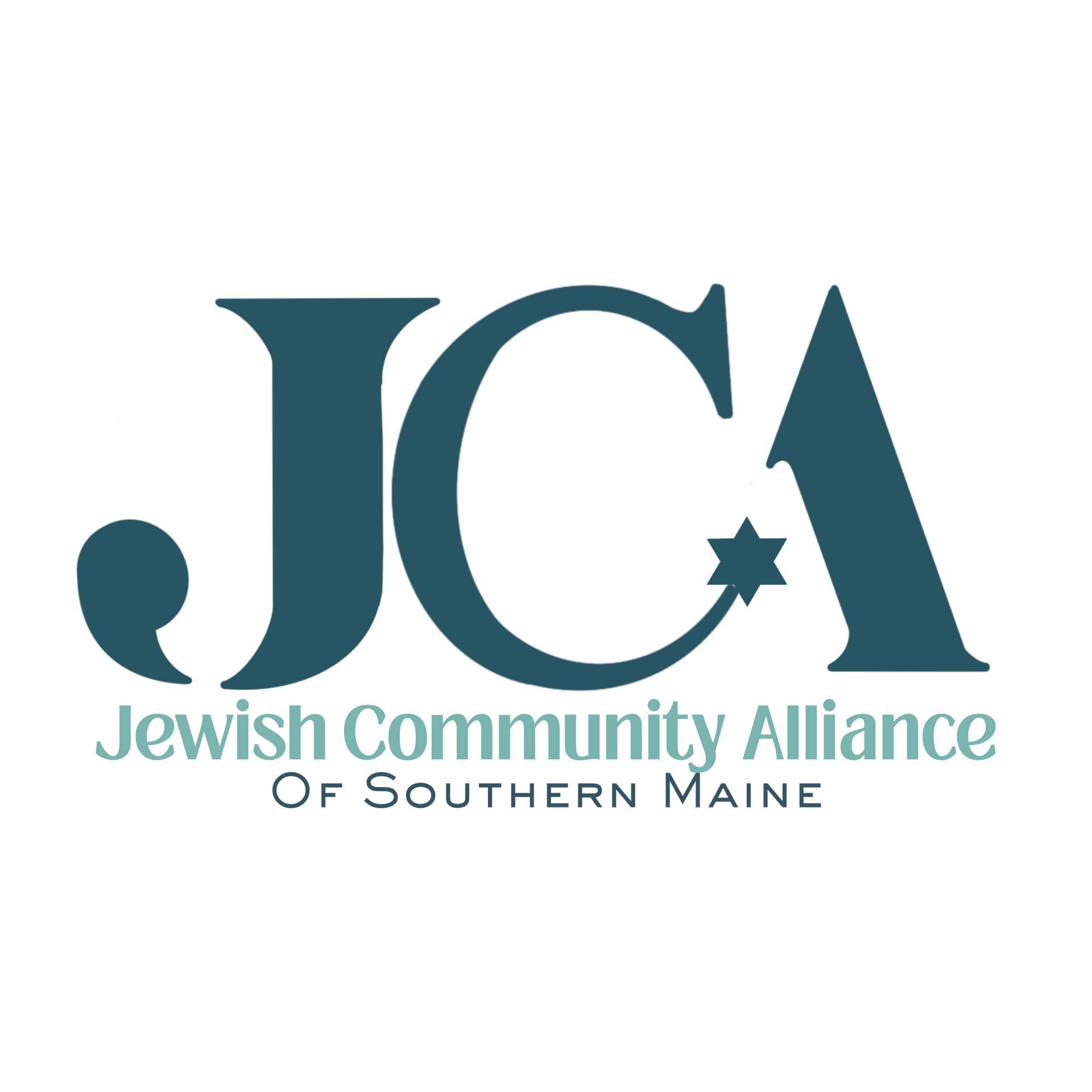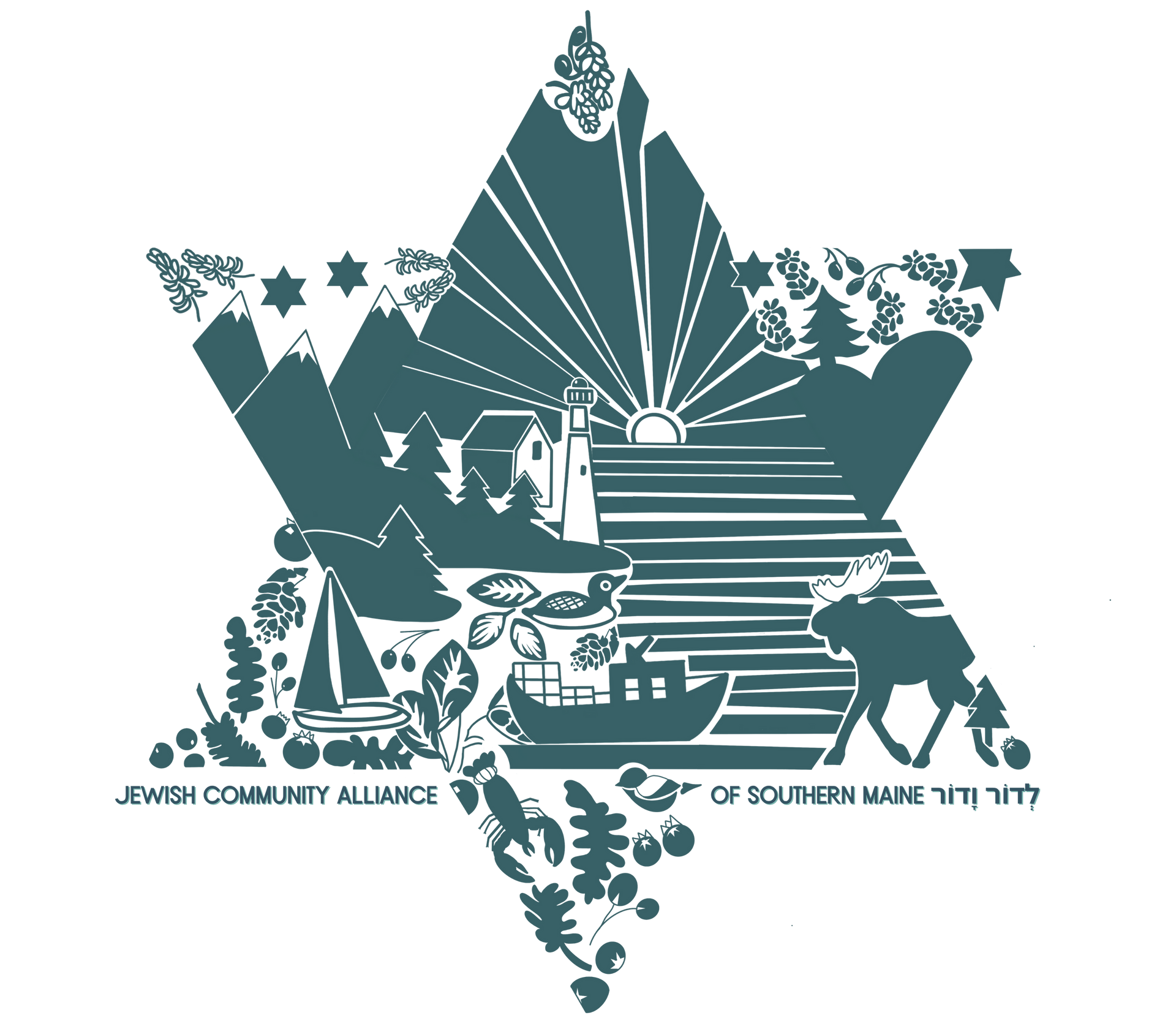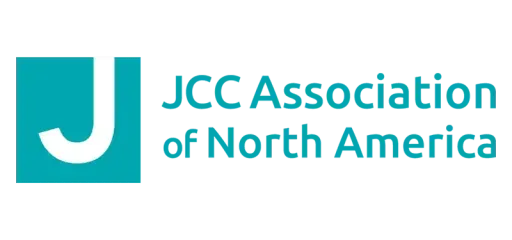A Note From the JCRC Director
Last month, the Jewish Community Alliance here in Portland, as well as another synagogue in Portland, received a letter. Its typewritten message was simple: “I will kill all at this location for Palestine for Russia.”
It hurts to admit that I wasn’t surprised. Since I began my role a few months ago, there has been what feels like at times a firehose of Jew-hatred: on my very first day of work, a white nationalist emailed hundreds of staff members at Portland schools a vile article with racist drawings of Jews lifted straight from Nazi Germany. I have learned of Jewish children finding swastikas scribbled on their belongings at Southern Maine schools. I’ve corresponded with a Jewish woman who was told on a Portland bus that she “belonged in a cemetery” for wearing a Star of David.
This isn’t just inflamed rhetoric. In the last two months, there have been two deadly terrorist attacks against the American Jewish community: a firebombing in Boulder, Colorado which killed an elderly Holocaust survivor, and a shooting at the Capital Jewish Museum in Washington, DC, in which a gunman yelling “Free Palestine” shot and killed Yaron Lischinsky and Sarah Milgram. The irony is that both Yaron and Sarah were peacemakers: Sarah volunteered at an advocacy group which trains young Palestinians and Israelis to work together, and Yaron worked at the Israeli embassy, with a focus on building bridges with the Arab world.
Our CEO, Leslie Kirby, and I were at the very same Capital Jewish Museum last month for a conference. In a sad reminder of our new norm, we were told to hide our presence there—no posting, no pictures—until after the event had concluded. There at the museum where the makeshift sidewalk memorial to Yaron and Sarah still gathered fresh flowers, we bowed our heads for a long moment of silence. I looked up to see faces filled with glistening tears—people who knew Yaron and Sarah personally.
With these events playing in my mind, I recently went to the synagogue in Portland which had also received a death threat letter. An armed guard greeted us at the door. Sitting there, I wished that modern antisemites could see the room. It was a beautiful, diverse gathering of people, simply thanking God for giving us the Torah (the first five books of the Hebrew Bible, known to Christians as the Old Testament). We prayed for peace, we read from the Torah, we sang the songs of our ancestors. Grandparents, parents, children, babies.
I wish that these Jew-haters could see the works of the Jewish Community Alliance of Southern Maine, and all the good deeds it does in the community. Every day, I am awed by my coworkers at the JCA, who in the last year alone have distributed over 46,000 diapers, 11,000 menstrual pads, and 500 pairs of winter boots to Mainers in need; they’ve helped hundreds of refugees secure life-saving medical care, housing, and first jobs; they’ve created “Mitzvah Days” where Jewish volunteers package meals for the needy and clean up Maine trails; they lend our space out to diverse cultural groups, including hosting last month’s World Refugee Day. It is incredible what the people on our staff do on a daily basis. It is fully in line with the Jewish value of Tikkun Olam—the practice of repairing our broken world.
And yet, there are groups that not only wish for Jewish death, but celebrate it. After the Capital Jewish Museum shooting, the DSA Liberation Caucus, which is a subgroup of the Democratic Socialists of America but does not speak for the organization as a whole, posted a picture of the shooter, Elias Rodriguez, with the words “Build the International Popular Cradle of Resistance!” underneath him. Their statement read: “Rodriguez’ targeted attack on two Israeli diplomatic staff on May 21, 2025 was a legitimate act of resistance…[his] act was fully justified.” They might as well have continued: slaughter anyone associated with Israel or Judaism, and you will be glorified.
I have no doubt that were a terrible attack to happen to the Maine Jewish community, those same people would gleefully celebrate it. But we know this is absolutely not true of the Portland or Maine community at large.
Just like we as a Jewish community condemn prejudice and hatred, just as we as a society can condemn racism and homophobia and Islamophobia, so too should we identify and condemn Jew-hatred—whether it emerges from bigots who wrongfully exploit the Palestinian cause to kill, threaten, or bully Jewish people, or from losers who drape themselves in the fetid symbols of Neo-Nazism.
We very much look forward to tackling this issue of antisemitism together as a community. Please continue to read for an update of what we’ve done so far, and an invitation to join our work.







